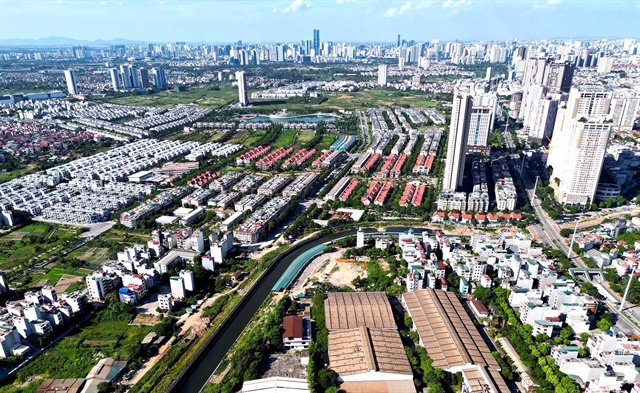Vietnam’s real estate sector recorded the establishment of 4,241 new companies in the first 11 months of this year, marking a 2.6 per cent annual dip, reported the General Statistics Office (GSO).

A view of Ha Dong District, Hanoi. — VNA/VNS Photo
Vietnam's real estate sector recorded the establishment of 4,241 new companies in the first 11 months of this year, marking a 2.6 per cent annual dip, reported the General Statistics Office (GSO).
This trend mirrored the broader business environment where new enterprise registrations across all sectors fell by 0.5 per cent, totaling 147,200.
Among the seven major sectors, real estate ranked sixth in new business registrations, outpacing only the electricity, water, and gas production and distribution sector (1,092 businesses). It trailed far behind the leading wholesale, retail, and motor vehicle and motorcycle repair sector, which saw a surge of 59,961 new enterprises.
In terms of business dissolutions, real estate ranked third, with 1,137 closures during the period, marking a roughly 1 per cent decrease.
Nguyễn Văn Khôi, president of the Vietnam National Real Estate Association (VNREA), pinpointed the primary challenges plaguing the sector, including land valuation, land use fee calculation, land clearance and allocation, and access to funding sources.
Despite the current hurdles, experts forecast a market upswing in 2025, buoyed by a raft of new circulars and decrees issued or taking effect in the third quarter of this year. These regulatory updates are set to catalyse project development and sales activities in the coming year.
Specifically, over 20 decrees and circulars were introduced in the third quarter, paving the way for the enforcement of the 2024 Land Law, the 2023 Housing Law, and the 2023 Real Estate Business Law. They provide investors with clearer guidance on land valuation, reclamation, fees and other key aspects. — VNS
Read original article here